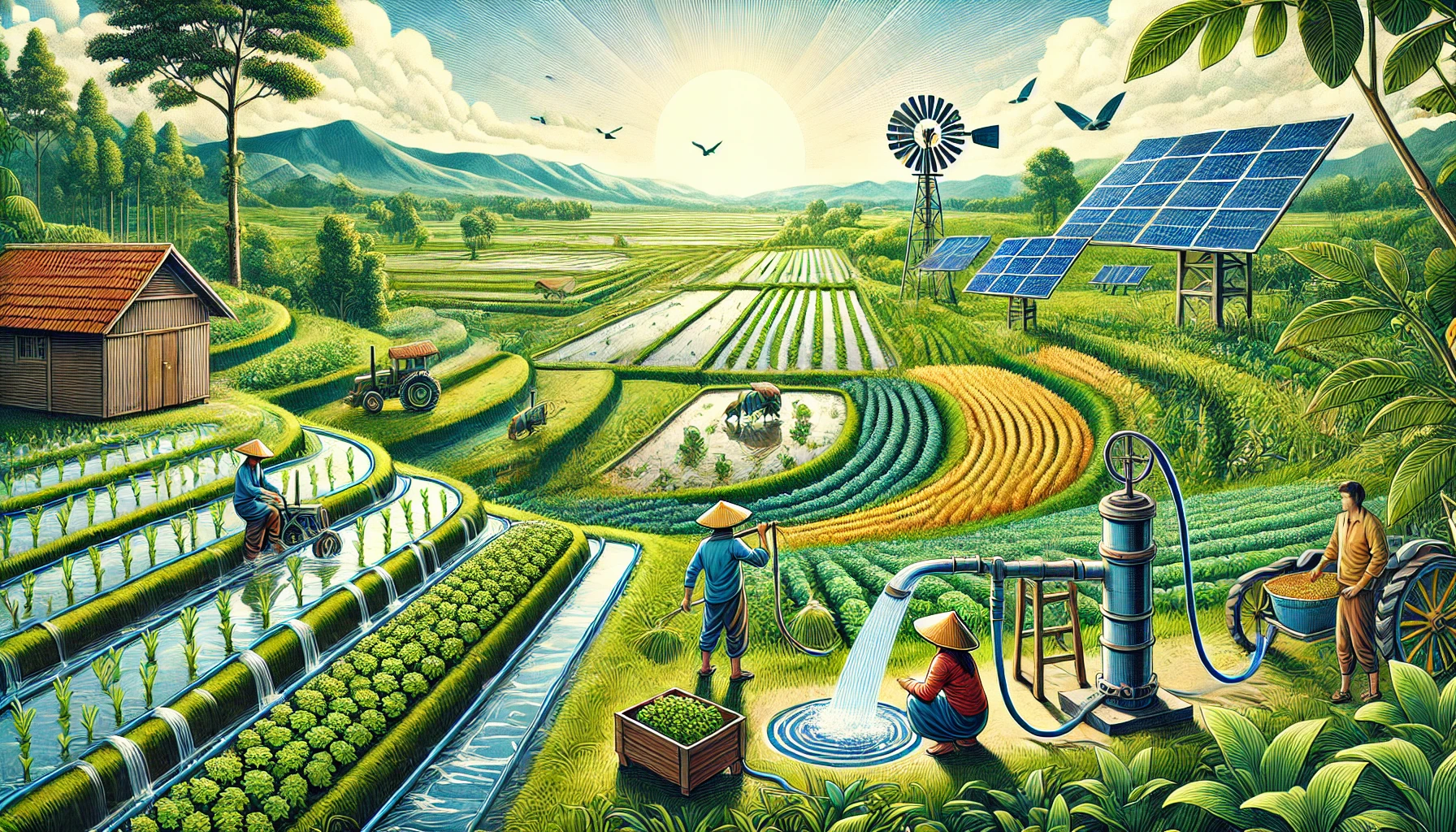Climate-Smart Agriculture: WRG’s Role in Tackling Water Scarcity and Global Emissions
The World Bank’s 2030 Water Resources Group (WRG) fosters sustainable agriculture by advancing water-efficient practices, reducing greenhouse gas emissions, and boosting productivity through public-private partnerships. Its initiatives, like Low Methane Rice and innovative irrigation systems in India and Bangladesh, enhance climate resilience and food security globally

The World Bank’s 2030 Water Resources Group (WRG), a global partnership between public and private sectors, is leading efforts to address water scarcity in agriculture, which accounts for 70% of global freshwater withdrawals. Operating as a trust fund within the World Bank, WRG collaborates with businesses, governments, and civil society to develop innovative water management solutions while fostering climate-resilient food systems. The urgent challenges posed by climate change have made these efforts crucial as farmers face mounting difficulties in meeting global food demands. WRG promotes micro-irrigation for water efficiency, improved cultivation techniques to lower greenhouse gas emissions, and market innovations that boost agricultural productivity and mechanization. By driving these sustainable practices, WRG helps secure stable food supplies, enhance farmers’ incomes, and conserve vital water resources globally.
Pioneering Low Methane Rice for Sustainability
Among its groundbreaking projects, WRG’s Low Methane Rice initiative aims to achieve transformative environmental and agricultural impacts. Building on the success of the Uttar Pradesh PRAGATI Accelerator in India, the initiative targets major rice-growing regions across South and East Asia to scale efforts in reducing methane emissions, improving water efficiency, and boosting yields. This innovative program exemplifies WRG’s ability to leverage public-private partnerships for bold solutions that were once considered unattainable. By replicating proven models like PRAGATI, WRG positions itself as a leader in tackling emissions while advancing climate-resilient agriculture. This project demonstrates how sustainable practices can simultaneously address global environmental challenges and local agricultural needs.
Revolutionizing Agriculture in Uttar Pradesh
In Uttar Pradesh, India, WRG is transforming traditional farming systems dominated by water-intensive crops such as wheat, rice, and sugarcane. Agriculture in the state uses two to three times more water per ton of food produced compared to the global average, placing immense pressure on already scarce water resources. To address this, WRG is implementing modern agricultural techniques to help smallholder farmers save water, increase productivity, and reduce emissions. Over five years, the program aims to reach one million farmers, increasing the use of micro-irrigation fivefold and scaling up direct seeded rice tenfold. Additionally, these efforts are projected to cut greenhouse gas emissions by 60%. WRG’s work in Uttar Pradesh illustrates how tailored interventions can deliver both environmental and economic benefits to farming communities while addressing larger sustainability goals.
Boosting Productivity in Bangladesh’s Water-Scarce Regions
In Bangladesh, WRG has introduced innovative farming solutions in the Barind Tract, a region plagued by water scarcity. By creating farmer hubs that offer access to advanced irrigation technologies and connect farmers with suppliers and markets, WRG has significantly improved agricultural productivity. Over the past five years, the initiative has trained 19,500 farmers and positively impacted an additional 58,500 people linked to farming households. The results are remarkable: rice yields have risen by 400 kilograms per hectare, and mango productivity has increased 200-fold. These outcomes underscore the success of WRG’s strategy to integrate water-efficient practices with economic development, providing farmers with tools and knowledge to achieve sustainable growth in challenging environments.
Scaling Innovations Across Regions
Beyond India and Bangladesh, WRG’s innovative projects serve as blueprints for other regions facing similar challenges. In Karnataka, India, WRG launched the world’s first large-scale community drip irrigation project, reducing water abstraction by 24 million cubic meters and replicating the model across an additional 100,000 hectares. In Kenya, WRG introduced a groundbreaking financing model that enabled smallholder farmers to access modern irrigation systems, benefiting 500 farmers and fostering broader development of farmer-led irrigation initiatives. Meanwhile, in South Africa, WRG implemented the nation’s first automated water administration system, reducing water distribution losses by up to 20% and expanding the model to 21 major irrigation schemes. These projects highlight WRG’s ability to design scalable and impactful solutions that enhance productivity while ensuring sustainable water use.
A Decade of Innovation and Global Impact
Over the past ten years, WRG’s initiatives have demonstrated the potential of public-private partnerships to tackle the interconnected challenges of water scarcity, agricultural productivity, and climate resilience. By combining local knowledge with global expertise, WRG has empowered farmers across Africa and Asia to adopt first-of-their-kind solutions, improving yields and reducing environmental impacts. From pioneering low methane rice cultivation to scaling irrigation innovations, WRG’s projects have set new benchmarks for sustainable water management. These efforts have not only alleviated immediate challenges but also created long-term pathways for resilience and growth. By ensuring food security, protecting natural resources, and reducing emissions, WRG continues to play a pivotal role in addressing some of the most pressing issues of our time. With a focus on collaboration, innovation, and sustainability, WRG is paving the way for a future where agriculture thrives without compromising the planet’s water resources.
- FIRST PUBLISHED IN:
- Devdiscourse










